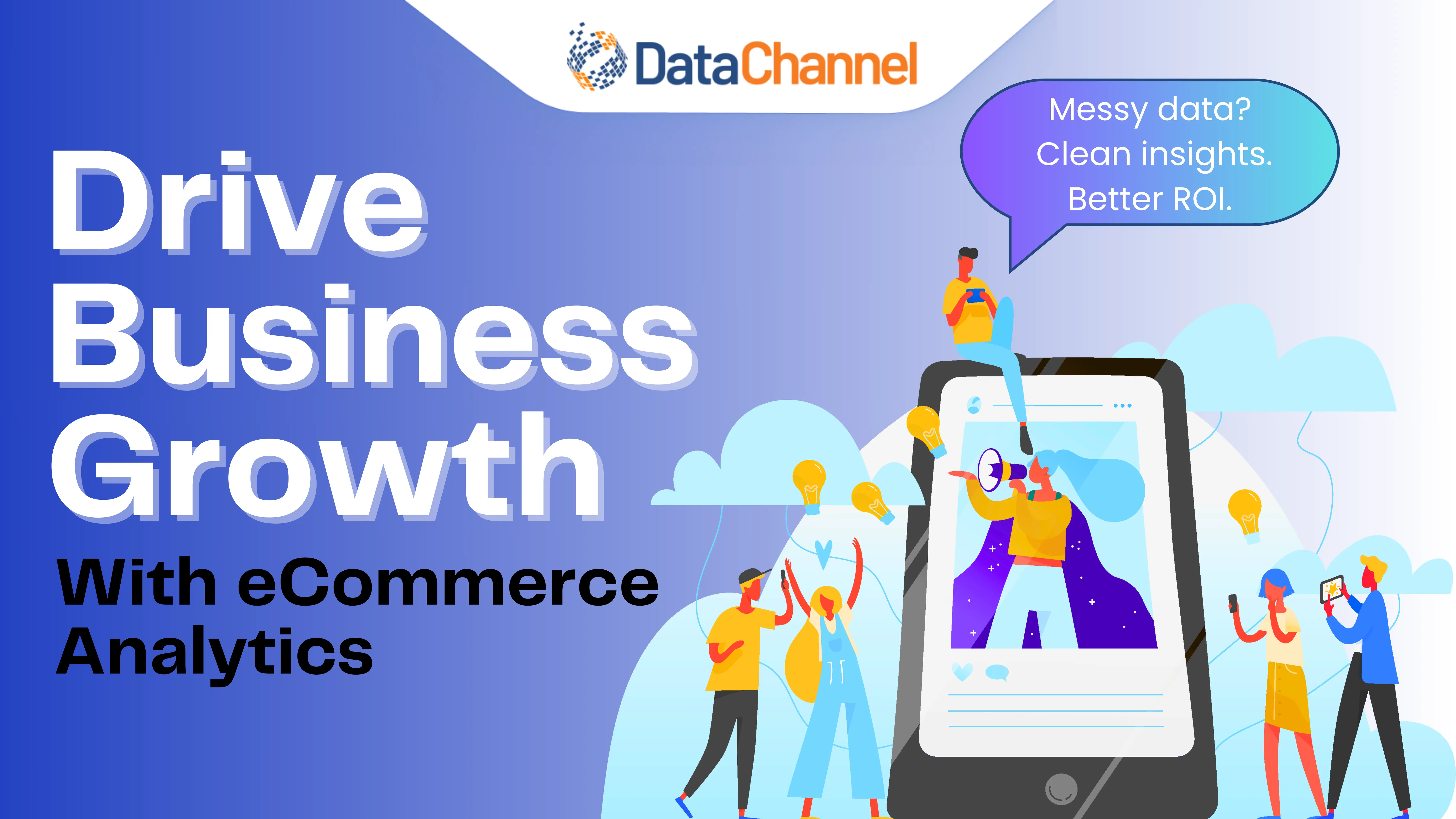
Importance of Data Aggregation in Healthcare Industry
Contents
Importance of Data Aggregation in Healthcare Industry
Benefits of Data Aggregation in Healthcare Industry
How to use the data efficiently?
About DataChannel
Wrapping up
Every organization, no matter what its size or niche is, generates large volumes of data regularly. The data, when utilized properly, can bring plentiful benefits to your business. The generated data needs proper aggregation tools to deliver evidence-based decision making that will bring favorable outcomes for your business. When it comes to healthcare data, the benefits of sharing are innumerable and leads to much better healthcare for payers and consumers alike.
In the healthcare sector, the patient data is created from the interaction of the patient with a healthcare center. The data of an individual patient includes his/her name, medical history, age, diagnosis, treatment outcome, and family medical history. This type of data holds critical importance for providing the best possible treatment to patients. With a precise understanding of the patient’s medical history, past diagnosis & treatments, and family medical history, doctors can make more accurate and intelligent decisions about their future treatment.
Now, what would happen if the doctors can access the same data on a larger scale, which means get hands on the data of hundreds or even thousands of similar cases? By aggregating the data of numerous similar cases, medical experts can come with more effective treatment methods to accelerate the overall healthcare facility. That’s the advantage of aggregate healthcare data. When there is optimum utilization of data, it can even save the lives of thousands of people. But don’t let one thing slip from your mind that the aggregated data may not provide everything that the doctors need to treat patients, but offers crucial insight for strategic planning and creating better health systems.
Benefits of Data Aggregation in Healthcare Industry
In the present time, the integration of healthcare data has become the most discussed topic between medical experts and healthcare providers. With the data, they are able to set a completely new angle to boost the efficiency of their treatments. For enhancing your knowledge about healthcare data aggregation, here we are listing a few points that will show how data sharing is influencing the healthcare sector:
- Build and maintain trust in data reliability and quality: Conducting a survey that ensures the health of thousands of people is relatively better than the one that ensures the well-being of only 10 individuals. By just increasing the sample size, you can increase the quality of data sharing.
- Better healthcare products: Better data facilitates better knowledge that is followed by better product development. Good quality and reliable data can assist the product developers in creating products that can perfectly fit in the requirements of a larger population. In addition to this, with the demand and supply statistics, you can ensure that the developed products are enough in the market.
- Effective monitoring of healthcare trends: By having a vast data of patients diagnosed with similar ailments, the medical experts can provide more effective treatment. By monitoring the trends in healthcare, doctors can identify potential diagnoses to better cope with the coming situations.
- Maintains reliability and transparency: Transparency acts as a foundation to build trust, and when it comes to transparency between product developers, providers, pharmaceuticals professionals, and patients, then it leads to long-lasting trust between the healthcare system and patients.
With the right data aggregation solutions, the healthcare data can be tracked more efficiently, and the insights developed can be used by medical professionals to deliver a better healthcare facility. The data holds critical importance to boost the overall healthcare system of a nation and needs proper utilization to create a positive impact in the medical sector. To make sure that your data shine, it’s important to use the same with efficiency.
How to use the data efficiently?
Data loses its value if not utilized properly. Here, we are listing a few tips that you can use to make efficient utilization of your data.
- Get access to the data feeds as quickly as possible: When you have to deal with larger quantities of data, it is important that you first gather it in one place, and then scrub it whenever you need it.
- Make your data architecture flexible: The data is generated daily and keeps on improving with time. Make sure that your data analysts move with the change in the healthcare trends to get hold of the latest information and then turn it into useful insights.
- Ensure that the context matches the definitions: Data generated from multiple sources sometimes lead to misleading contextual information. At the time of scrubbing the data, eliminate the differences to get accurate information in hand.
.png)
About DataChannel
As one of the very few data integration platforms that give you access to both ETL & reverse ETL capabilities, DataChannel is an automated no-code platform that creates stable data pipelines effortlessly. With 100+ pre-built data connectors, it gives you superb control over your data, supports all major cloud data warehouses while also offering a managed data warehousing capability. It has an intuitive interface which helps obtain full data visibility, ease of management and advanced scheduling features. DataChannel adheres to GDPR rules for data safety and provides integrations with Facebook Ads, Google Ads, Google Analytics 4, Amazon Marketplace, Shopify and almost all major SaaS platforms. It has in-built support for previewing data without leaving the platform and scheduling data transformation pipelines. DataChannel is known for its best in class support and on-boarding services. It is priced very competitively with a transparent pay-as-you-go model and offers a forever free tier.
Wrapping up
Aggregation of the healthcare data is the first step towards solving various problems of the medical sector. With the advent of AI/ML technologies, this sector is primed for disruption. The aggregated data can be utilized to simplify the decision-making process in an organization strategically. For making healthcare facilities more transparent, effective, and reliable, data aggregation plays a critical part.
DataChannel – An integrated ETL & Reverse ETL solution
- 100+ Data Sources. DataChannel’s ever-expanding list of supported data sources includes all popular advertising, marketing, CRM, financial, and eCommerce platforms and apps along with support for ad-hoc files, google sheets, cloud storages, relational databases, and ingestion of real-time data using webhooks. If we do not have the integration you need, reach out to our team and we will build it for you for free.
- Powerful scheduling and orchestration features with granular control over scheduling down to the exact minute.
- Granular control over what data to move. Unlike most tools which are highly opinionated and dictate what data they would move, we allow you the ability to choose down to field level what data you need. If you need to add another dimension or metric down the line, our easy to use UI lets you do that in a single click without any breaking changes to your downstream process.
- Extensive Logging, fault tolerance and automated recovery allows for dependable and reliable pipelines. If we are unable to recover, the extensive notifications will alert you via slack, app and email for taking appropriate action.
- Built to scale at an affordable cost. Our best in class platform is built with all ETL best practices built to handle billions of rows of data and will scale with your business when you need them to, while allowing you to only pay for what you use today.
- Get started in minutes. Get started in minutes with our self-serve UI or with the help of our on-boarding experts who can guide you through the process. We provide extensive documentation support and content to guide you all the way.
- Managed Data Warehouse. While cloud data warehouses offer immense flexibility and opportunity, managing them can be a hassle without the right team and resources. If you do not want the trouble of managing them in-house, use our managed warehouse offering and get started today. Whenever you feel you are ready to do it in-house, simply configure your own warehouse and direct pipelines to it.
- Activate your data with Reverse ETL. Be future-ready and don’t let your data sit idle in the data warehouse or stay limited to your BI dashboards. The unidimensional approach toward data management is now undergoing a paradigm change. Instead, use DataChannel’s reverse ETL offering to send data to the tools your business teams use every day. Set up alerts & notifications on top of your data warehouse and sync customer data across all platforms converting your data warehouse into a powerful CDP (Customer Data Platform). You can even preview the data without ever leaving the platform.

Try DataChannel Free for 14 days










